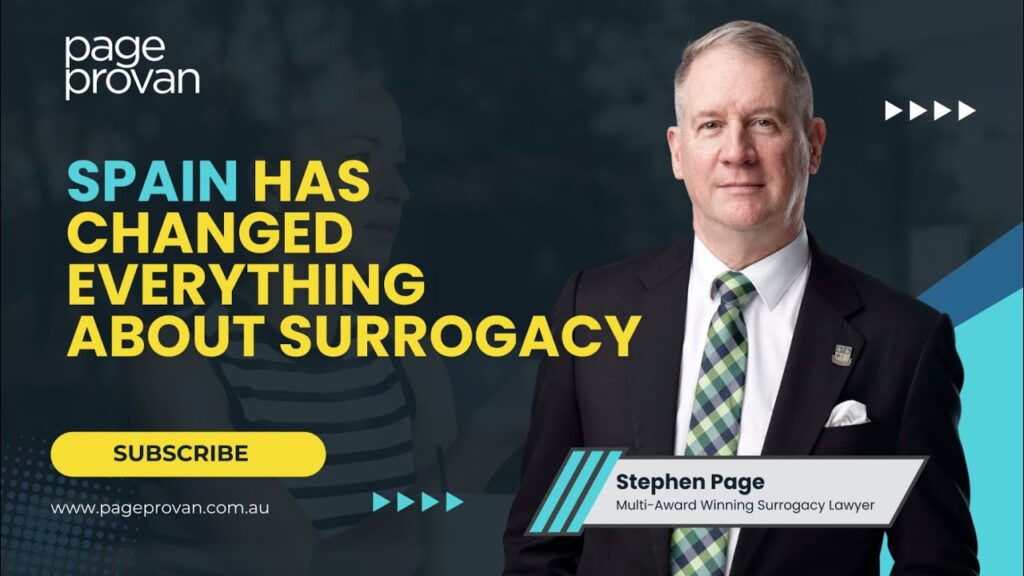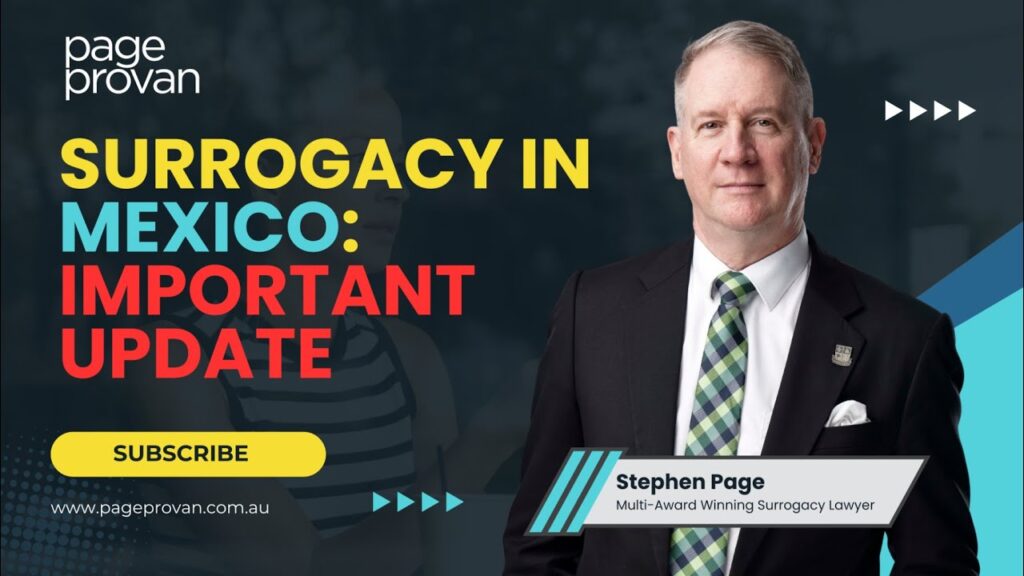The Risks of Going Overseas for Egg Donation
In this video, our director and award-winning fertility lawyer, Stephen Page, discusses three important factors about undertaking egg donation overseas.
Transcript
G’day, Stephen Page from Page Provan Family and Fertility Lawyers, and today, I’m talking about going overseas for egg donation. There are really three things you need to know about undertaking egg donation overseas.
One is a legal issue, one is a quality issue, and one is the outcome. So the first one is the legal issue. Throughout Australia, it is an offence to pay or to give, it’s to offer or to give consideration to use the jargon for the supply of a human egg, human sperm, or human embryo.
There’s an exception for reasonable expenses, whatever they are, and it’s pretty vague term about what they are, but the offence is up to 15 years imprisonment. It’s a really heavy offence, and it’s really complex because the Commonwealth Parliament has limited constitutional powers.
We have a Commonwealth Act, and then we have matching acts which are allowed to stand from every state and the ACT. For some reason, the Northern Territory hasn’t got one.
So in Queensland , for example, it’s a 15-year jail term under the Queensland Act to do this, and the same in New South Wales, Victoria, et cetera, and then in addition, we have human tissue acts, and these come under two different names, either Human Tissue Act, for example, in New South Wales or Victoria, or Transplantation and Anatomy Act, as we see in Queensland or South Australia.
WA is the exception, it’s the transplantation and human tissue act, if I’ve got it right, or human tissue and transplant act. I’m sorry, the WA Act is an outlier in terms of its name. But the effect of that legislation is the same, that if you buy human tissue, and this can include eggs, then a penalty applies.
It varies, but in general terms, there’s a penalty of up to six months in prison. So, w e’ve got this really big offence, the 15-year one, and then we’ve got the smaller one, the six-month. So, what’s this got to do with going overseas?
Well, in six of our eight jurisdictions, and that’s everywhere but Victoria and Tasmania, there is what is called a long-arm law, and that reaches out like a long-arm.
It extends the jurisdiction of that place overseas or inter-state, and to give you a couple of examples, Section 10C of the New South Wales Crimes Act, or Section 5 capital G of the Criminal Law Consolidation Act, 1935 from South Australia. But everyone has them: Queensland, New South Wales, ACT, South Australia, Western Australia, Northern Territory, except Victoria and Tasmania.
So what that means is if you undertake egg donation overseas, say, for example, you want to burn a lot of money and you go to California and do it there, or even if you spend a lot less money and you go to a Latin American destination or Europe, if it’s seen to be a commercial amount, there is a risk that you could be unintentionally committing that serious criminal offence at home. and
So what I’d say to you is before you sign any contract, go and get expert legal advice, whether it’s from me or someone else, to make sure you aren’t hitting the tripwire through the minefield of an offence, punishable up to 15 years jail, and another one potentially of a fine or six months jail.
The second issue with egg donation is the quality of the IVF. Don’t ever, ever make the mistake of assuming that the overseas IVF clinic is as good as the one here. It simply may not be.
I’d certainly suggest talking to your fertility specialist about who they recommend, and the fertility specialist might say, Well, you should go to this clinic. Okay, great, because they’re really good.
They know what they’re doing, or your fertility specialist might say, Well, I can’t give you any advice about it because I know it’s a crime to go overseas for commercial egg donation, so I’m not going to give you a thing. But at least you can ask. Certainly, I have a view about what clinics are good and ones to avoid.
But of course, I’m only relying on what general industry knowledge and what my clients are telling me. I’m not a specialist, a fertility specialist. You would hate for a lawyer to be that, but I’m not.
But certainly I’ve gone to a number of overseas clinics, I like to look at the labs and talk and ask about their auditing processes and their general protocols and have an impression.
But I don’t claim to be an expert in the field, but ask, and the third one is, is the overseas egg donor going to be anonymous or open or what Americans call open identity, in other words, like us, namely when the child turns 18, the child can find out. It’s certainly said by some, and I’ve certainly said it that it’s a basic human right to know where we’ve come from.
The European Court of Human Rights has recently said otherwise, and I’ve got that in another video. But I would be saying that if you talk to a donor, conceived adult, and they don’t know where they’ve come from, they can be very unhappy vegemites.
So it’s really important that if you choose to have an egg donor and you don’t know who that is, and your child will never find out, it’s your risk to wear for the rest of your life. If your child is one of those who really, really, really wants to find out, and you can and they can never find out.
So I’d certainly say if you’re looking at going to do overseas egg donation, encourage you to have a known donor, for example, in Canada, or go to a jurisdiction where the donor can be found out either as a known donor or an open identity donor, as now commonly happens in the States.
Those are the three things: the legal, the quality of the IVF clinic, and the child knowing when they come from. They’re the three key points to know when doing overseas egg donation. Thanks.












